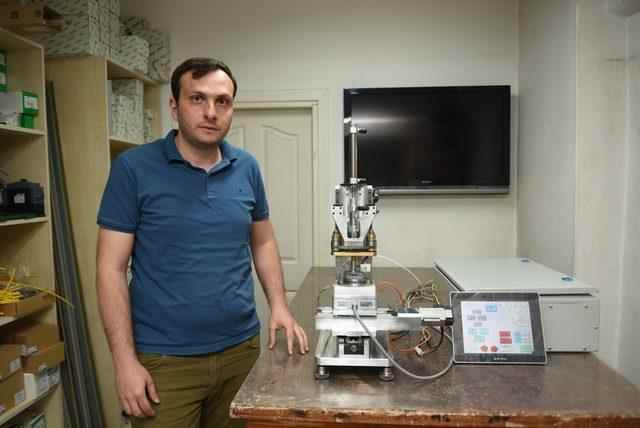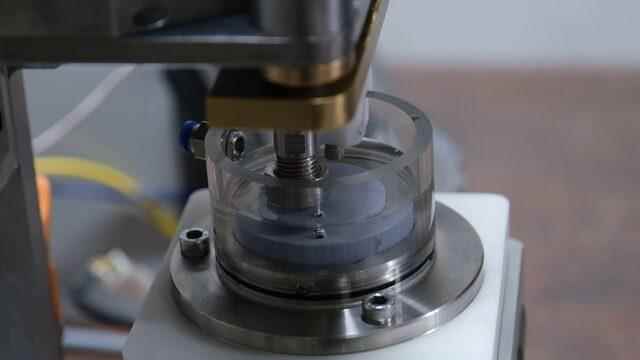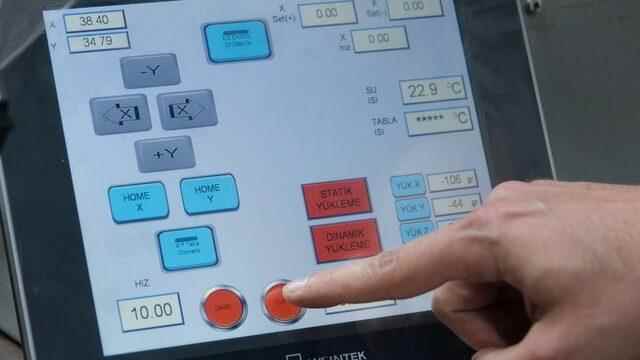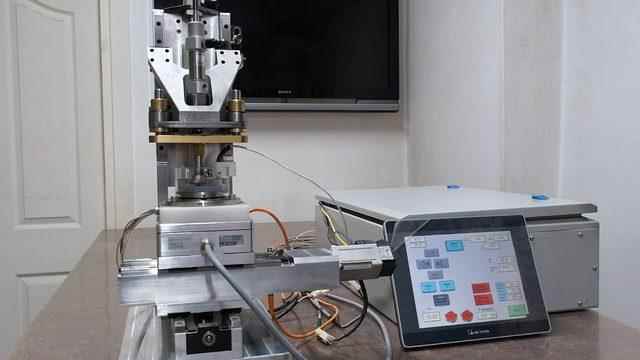Within the scope of a project carried out in cooperation with scientists from Hitit and Iskenderun universities, a biotribometer device was developed to determine whether biomaterials that can be used instead of damaged cartilage tissue in joints such as knees, hips and shoulders are in accordance with the standard, in a cheaper and shorter time.
A FIRST IN TURKEY
Hitit University Faculty of Engineering Dr. Faculty Member Yusuf Kanca and İskenderun Technical University faculty member Assoc. Dr. It was stated that the biotribometer device developed by Erdoğan Kanca is a first in Turkey.

Dr. Professor Yusuf Kanca, in his statement, said that it is of great importance that the tests performed in obtaining data on the friction and wear performance of biomaterials used instead of damaged cartilage for people with joint disorders comply with the standards, but that the said data in Turkey can be obtained with traditional test devices. .

Explaining that the test processes with traditional devices do not always give accurate results, and this situation negatively affects the material development processes, Dr. Professor Kanca said:
“In order to overcome these problems, we have prepared a project to develop a device that will determine the most suitable biomaterials needed by our citizens with joint disorders. As a result of our long-term studies, we have developed a biotribometer device, which is the first in Turkey. This device can evaluate the friction and wear performance of biomaterials in physiological conditions in accordance with ISO and ASTM standards and determine whether they are suitable for use in joints.
THE TESTS TAKING WEEKS WILL BE FINISHED IN A FEW DAYS
Dr. Lecturer Kanca stated that with the new device, data on the friction and wear performance of the material can be collected much cheaper and faster by using geometric surfaces such as pins, plates, discs, without the need for a joint prosthesis prototype during the material development phase, and continued as follows:

“While the process of evaluating the friction and wear performance of these biomaterials with the joint simulator may take weeks, it can be completed in a few days with the device we have developed. Moreover, with the developed device, tests can be performed at body temperature and in biological fluids. During these tests, which should last for hours or days without stopping, it is possible to supplement the evaporating test liquid with the syringe pump system we have developed. In addition to joint prosthesis materials, the clinical performance of biomaterials developed for brain and skin tissues in terms of friction and wear can also be tested with the device. We think that companies that develop biomaterials in the areas we mentioned and university laboratories that conduct friction and wear tests will show great interest in our device, which has such superior features.”
LOW COST
Stating that the device, which was developed for approximately 250 thousand liras, can be put on the market much more economically than its counterparts abroad, Kanca said, “We are in contact with companies operating in the field of health technologies for the launch of our device. Our efforts are continuing to bring it to the market as soon as possible. As the only university specializing in machinery and manufacturing technologies, we are happy to make a serious contribution to our country with this device.” (UAV)
